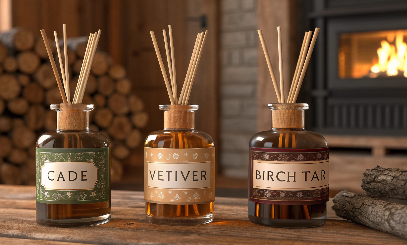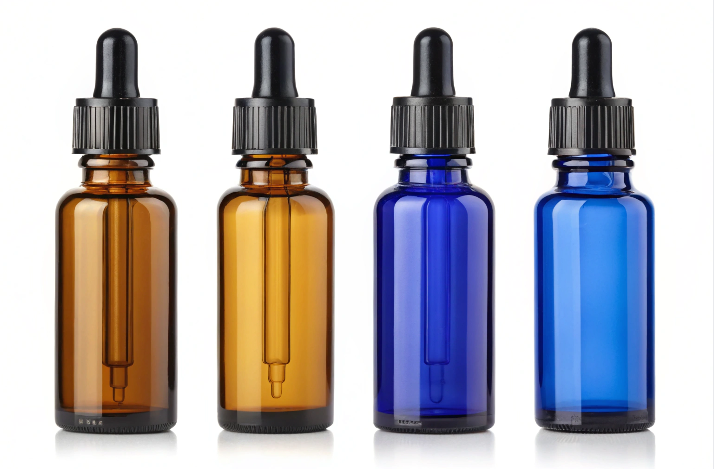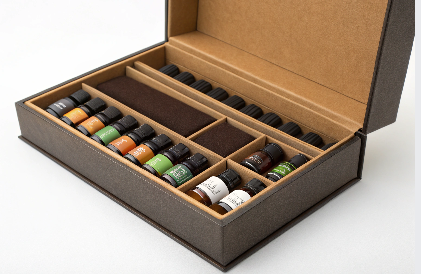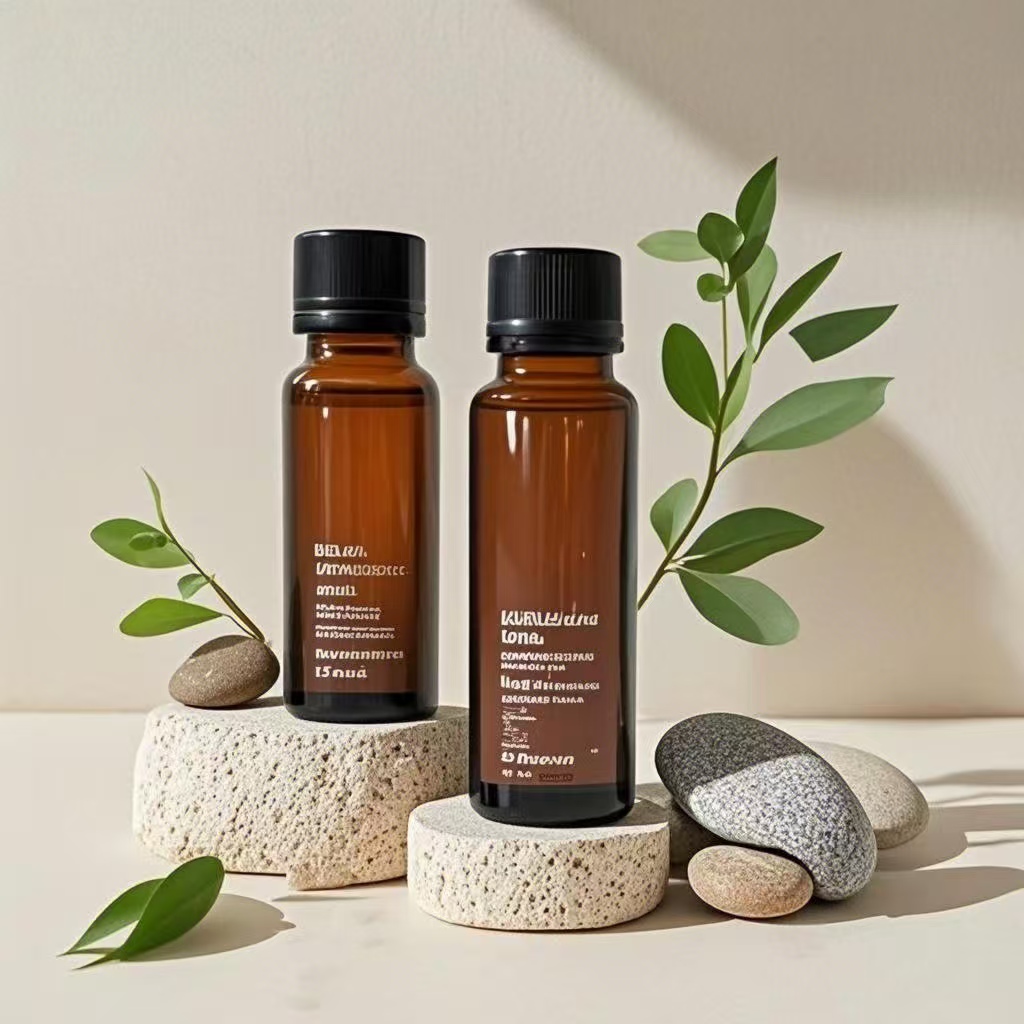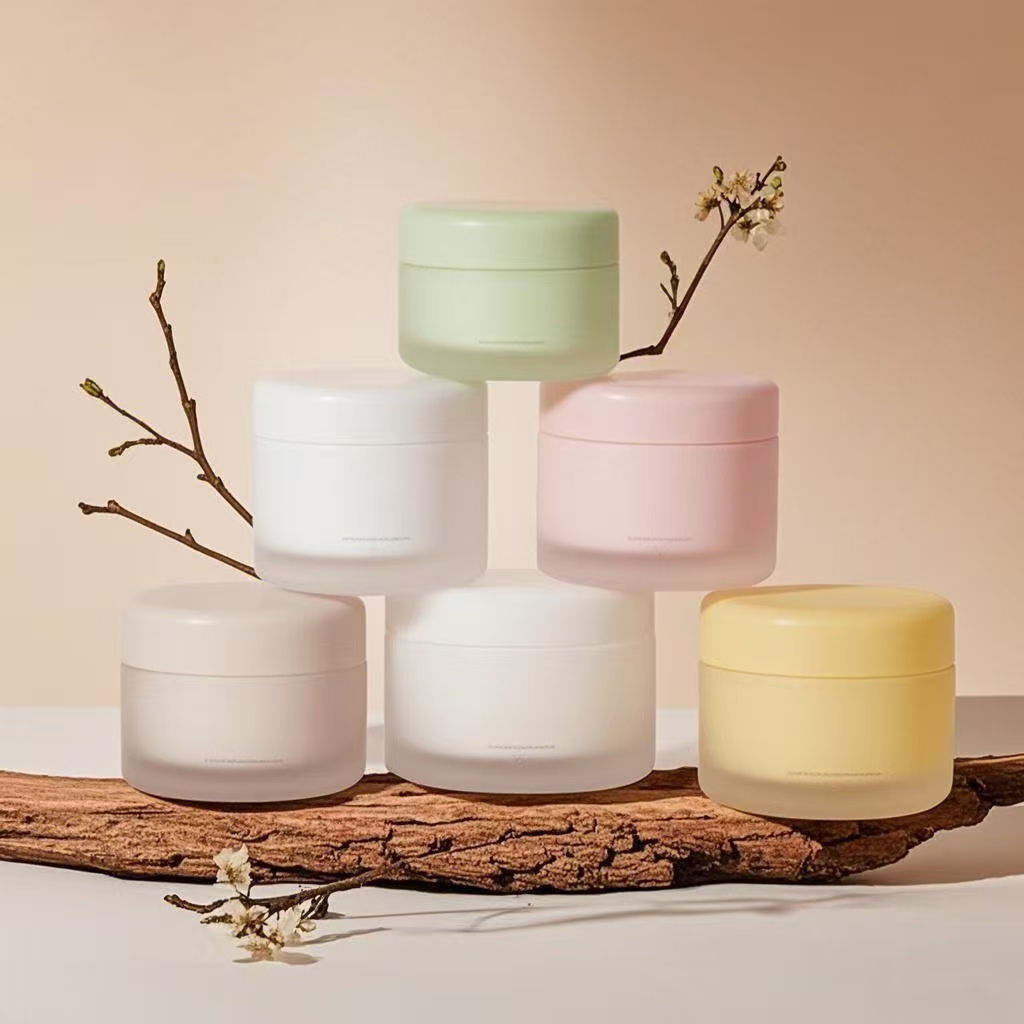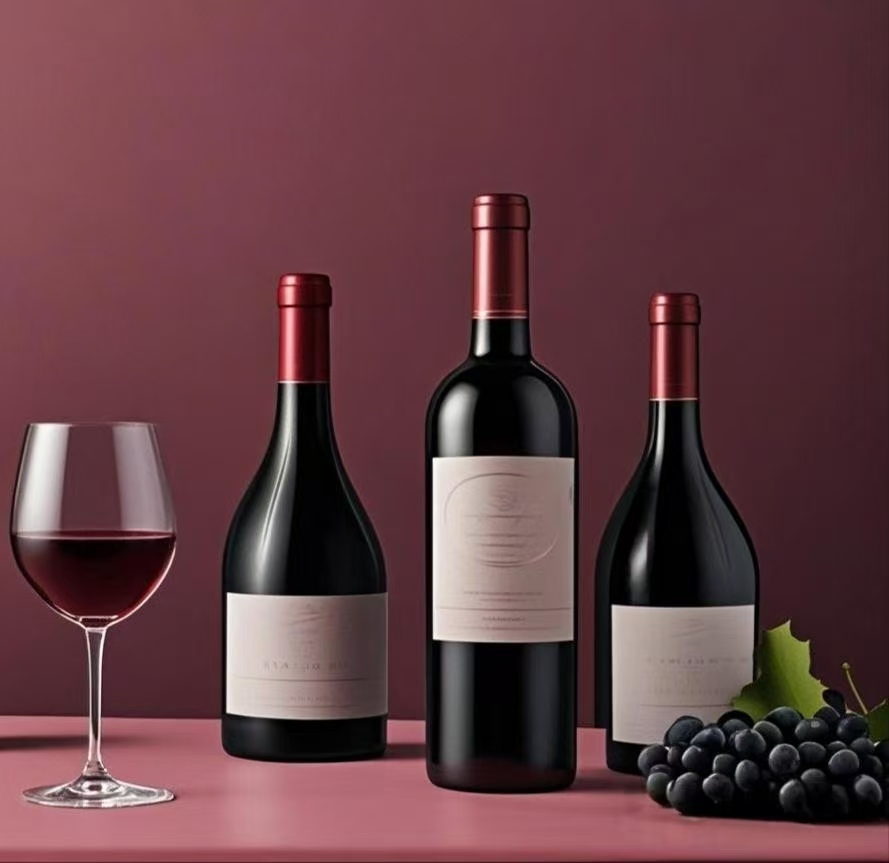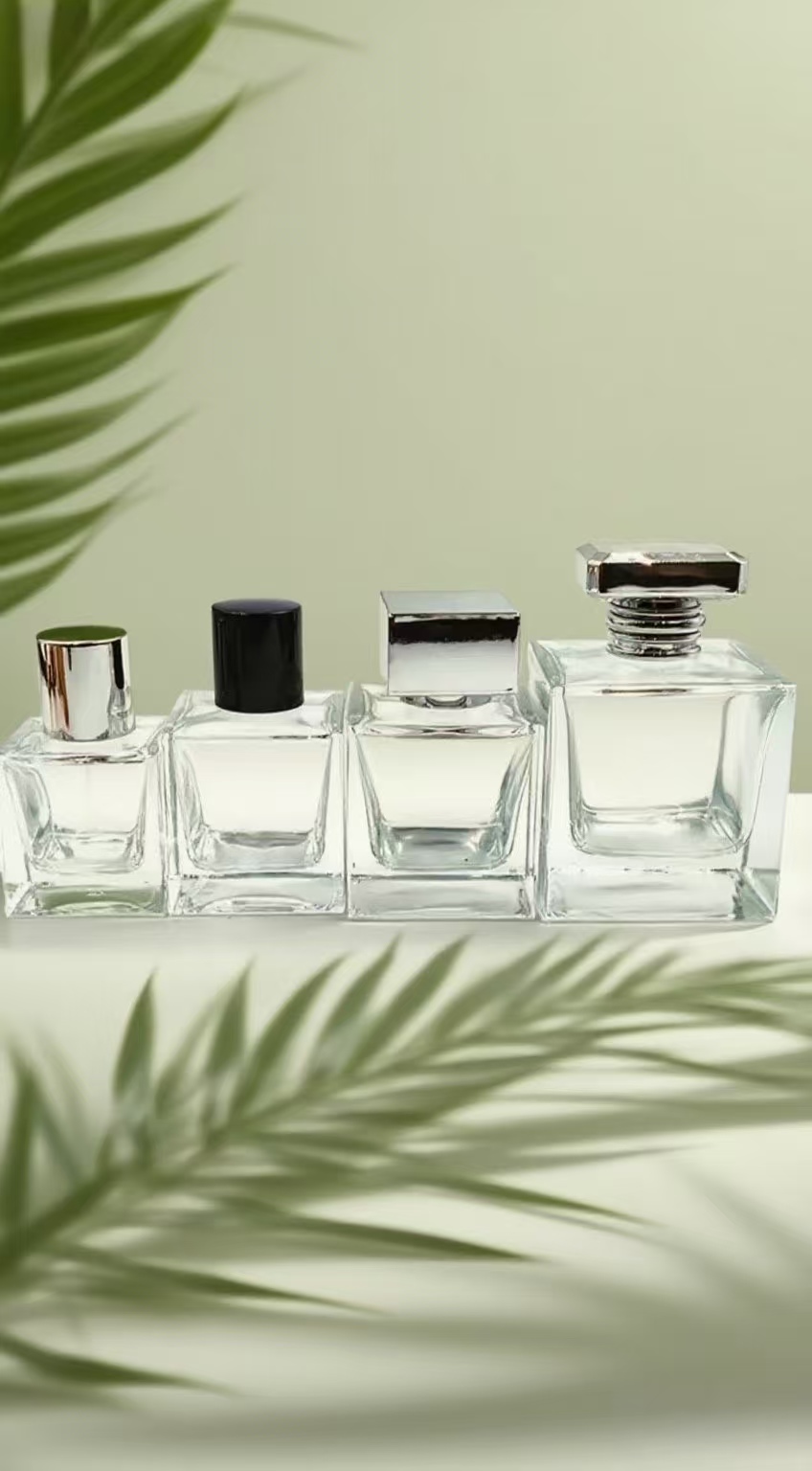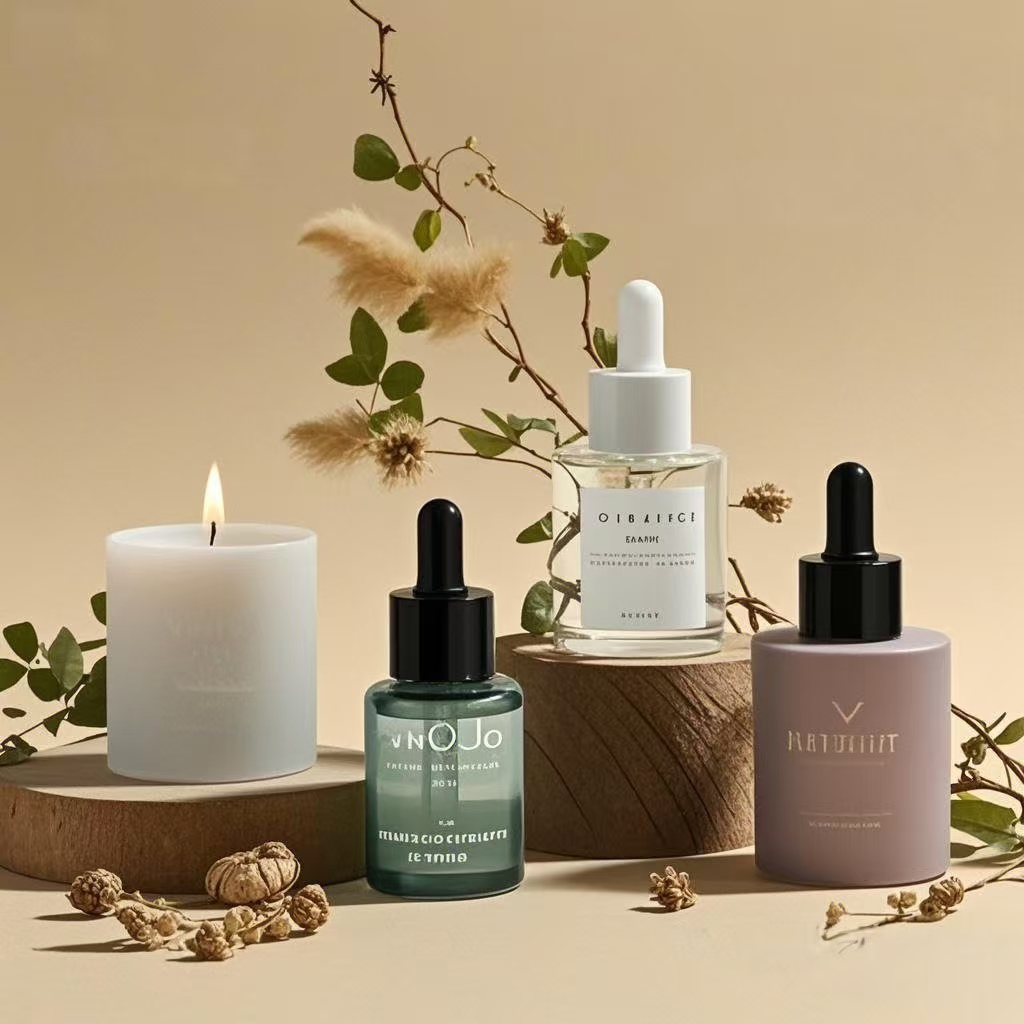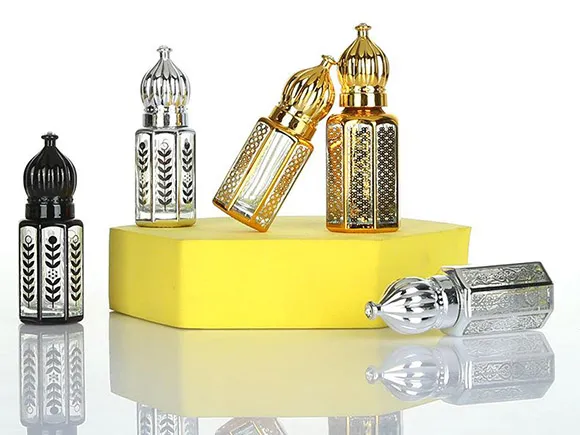Essential oils are among the most concentrated and sensitive natural substances used in wellness, skincare, and beauty products. Yet, many new entrepreneurs in the aromatherapy or cosmetic space wonder: Do essential oils really need to be in glass bottles? Can’t we just use plastic to save on cost and shipping?
Yes, essential oils must be stored in glass bottles to preserve their chemical integrity, prevent contamination, and maintain their shelf life. Essential oils are extremely potent, and plastic, even the durable kinds, can react with the volatile components in essential oils, leading to degradation and safety concerns.
The packaging you choose directly affects product performance and brand reputation. In this article, I’ll break down the science, industry standards, and practical guidelines around essential oil storage, so you can make informed decisions for your business.
Let’s start with the most common question I hear:
Introduction to Essential Oil Storage
Essential oils are highly concentrated plant-based compounds that require proper storage to maintain their quality and potency. One of the most critical aspects of essential oil storage is the type of container used. Glass bottles are the preferred choice for storing essential oils due to their inert nature, which prevents the oil from reacting with the container. Essential oil bottles come in various sizes, ranging from 1ml to 30ml, with the 10ml bottle being the most frequently used size for packaging pure essential oils. When storing essential oils, it is essential to use dark glass bottles, such as amber or cobalt blue, to protect the oil from UV light and visible light, which can cause degradation and spoilage.
Is it okay to put essential oils in plastic bottles?
The short answer: no. The longer answer involves chemistry, customer safety, and long-term business strategy.
Pure essential oils should never be stored in plastic bottles, as they can degrade the plastic, absorb contaminants, and alter the chemical structure of both the oil and the container.
Why plastic is a problem for essential oils
Essential oils are volatile organic compounds (VOCs). They’re highly concentrated, and some have solvent-like properties. Citrus oils, for example, can literally eat through plastic over time.
1. Chemical reactivity
Most common plastics like PET (Polyethylene Terephthalate), HDPE (High-Density Polyethylene), and LDPE (Low-Density Polyethylene) are not chemically resistant to essential oils. While impermeable plastics such as PET are sometimes used for essential oil bottles, they are not ideal due to the potential corrosive nature of essential oils, making glass a more reliable option for preservation. This can lead to:
-
Leaching of plasticizers into the oil
-
Discoloration or clouding of the container
-
Warping or weakening of the bottle wall
|
Plastic Type |
Safe for Essential Oils? |
Notes |
|---|---|---|
|
PET |
❌ |
Not safe for pure oils; can degrade |
|
HDPE |
⚠️ |
Temporarily safe for diluted oils only |
|
LDPE |
❌ |
Easily permeable to VOCs |
|
PP |
⚠️ |
Some resistance, but not long-term |
2. Oil absorption and scent contamination
Plastic can absorb oil components, permanently altering its internal surface. The plastic will hold onto the scent and chemical residue, which:
-
Makes it impossible to reuse for another type of oil
-
Causes scent blending or mutation
-
Leads to inconsistent customer experiences
3. Structural breakdown
Over time, the presence of essential oils can cause plastic containers to soften, collapse, or leak. This leads to:
-
Damaged labels
-
Oily residue on shelves or in shipping boxes
-
Negative customer reviews
At PauPack Bottles, we often hear from clients who switched from plastic to amber glass after dealing with leakage, returns, and brand credibility issues. In competitive industries like wellness and cosmetics, such problems can quickly derail a launch.
Why are essential oils in glass bottles?
There’s a reason every reputable aromatherapy brand uses glass—it’s not just tradition or visual appeal.
Glass is the industry standard because it is inert, impermeable, and protects essential oils from environmental factors like UV light, heat, and oxygen.
What makes glass ideal for essential oil storage?
1. Non-reactivity
Glass is chemically stable. It does not leach, interact, or absorb the oils it contains. This means:
-
No unwanted chemical reactions
-
No contamination
-
Consistent scent and potency
2. UV protection
Dark glass—especially amber and cobalt—protects oils from light damage. UV rays cause oils to oxidize and lose their efficacy. Amber glass filters out most UV rays, including both UVA and UVB rays.
|
Glass Color |
UV Protection |
Recommended For |
|---|---|---|
|
Amber |
★★★★★ |
All oils, especially citrus |
|
Cobalt Blue |
★★★★☆ |
Spa and beauty oils |
|
Green |
★★☆☆☆ |
Decorative use only |
|
Clear |
☆☆☆☆☆ |
Temporary storage only |
3. Sustainability and consumer perception
Glass is reusable, recyclable, and seen as a premium material. For eco-conscious customers, glass signals:
-
Brand responsibility
-
Purity of ingredients
-
Higher perceived value
At PauPack, we help clients choose between Boston rounds, euro droppers, and roll-ons—all in medical-grade amber or cobalt glass. With custom cap finishes and logo printing, you can align protection with branding.
Types of Glass Bottles
There are several types of glass bottles available for storing essential oils, each with its unique characteristics and benefits. Amber glass bottles are a popular choice due to their excellent UV protection, which helps to preserve the oil’s chemical composition and therapeutic properties. Cobalt blue bottles also offer good UV protection and are often used for storing essential oils that are sensitive to light. Clear glass bottles, on the other hand, are not recommended for storing essential oils as they do not provide adequate protection against UV light. However, they can be used for storing essential oils that are not sensitive to light, such as those used in aromatherapy. Dropper bottles are another type of glass bottle that is commonly used for storing essential oils, as they allow for precise control over the amount of oil dispensed. Boston round bottles are also widely used for storing essential oils and are often paired with dropper inserts or orifice reducers to control the flow of oil. When choosing a glass bottle for storing essential oils, it is crucial to consider the type of oil being stored, as well as the intended use and storage conditions.
Is it okay to put oil in a plastic bottle?
Some clients ask this thinking about oils in general—not just essential oils. The distinction matters.
Carrier oils (like coconut, jojoba, or almond oil) may be stored in food-grade plastic short-term, but essential oils should always be in glass.
When plastic might be acceptable
1. Diluted blends
If the essential oil concentration is below 2%, and it’s blended into a lotion or carrier oil, then temporary storage in HDPE or PP plastic may be okay. These are commonly used in skincare for:
-
Body oils
-
Creams
-
Lotions with essential oil content
But even in these cases, plastic must be tested for compatibility.
2. Short-term samples or testers
For trade shows, sample giveaways, or enclosed gift kits, plastic may be a temporary solution. Still, you’ll need to:
-
Choose high-resistance materials (PP, PETG)
-
Minimize exposure time
-
Store in opaque or secondary packaging
At PauPack, we provide clear guidance to clients creating starter kits or limited-run promotional sets. For example, we may use inner glass vials inside outer PET boxes to achieve both safety and brand impact.
What is the best bottle to store essential oils in?
Choosing the best bottle isn’t just about what works—it’s about what works best for your brand, your formula, and your customer’s expectations.
The best bottles for essential oils are amber glass bottles with tamper-evident droppers or reducer caps, offering maximum protection against light, air, and contamination.
Ideal features for essential oil bottles
|
Feature |
Why It Matters |
PauPack Solution |
|---|---|---|
|
Amber glass |
Maximum UV protection |
ISO-tested stock |
|
Airtight seal |
Prevents oxidation |
Orifice reducers |
|
Small volume (5–15ml) |
Reduces waste and prolongs freshness. Nominal capacity, the volume a container is designed to hold, is crucial for industry standards and affects product filling and storage considerations. |
5ml/10ml dropper bottles |
|
Dropper cap or roller |
Precise dosage and user-friendly |
Custom cap kits |
|
Silk-screen labels |
Resistant to oil, heat, and humidity |
Full-service decoration |
Customization options
At PauPack, we work closely with beauty and wellness brands to match form with function. We offer:
-
Hot stamping, silk screen, and frosting
-
Child-resistant caps for aromatherapy blends
-
Bamboo caps for sustainable beauty brands
-
Matte black, frosted finishes, and frosted glass for high-end lines
Whether you need a clinical amber dropper or a spa-friendly cobalt roller, our team ensures the packaging reinforces your formula’s value.
Conclusion
Glass bottles aren’t just a packaging choice for essential oils—they’re a quality guarantee. By avoiding plastic, you protect the potency of your product, reduce contamination risk, and elevate your brand in a crowded market. Whether you're launching a wellness startup or scaling a global aromatherapy line, PauPack is here to help you package with confidence.




